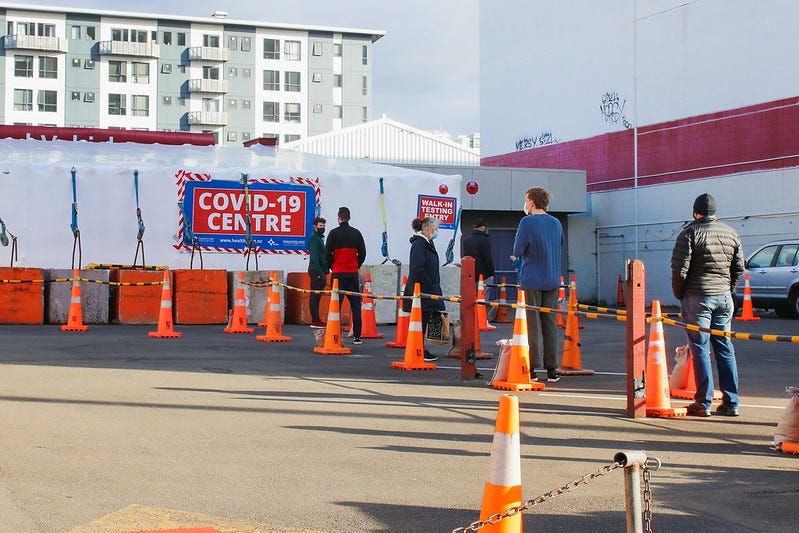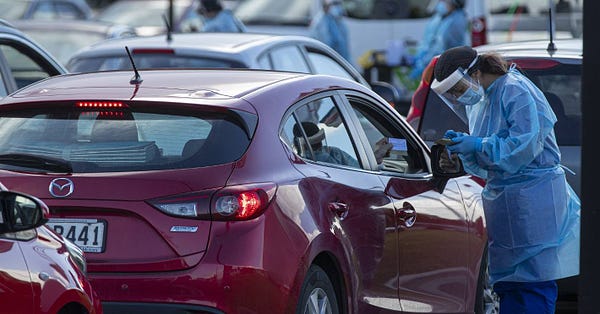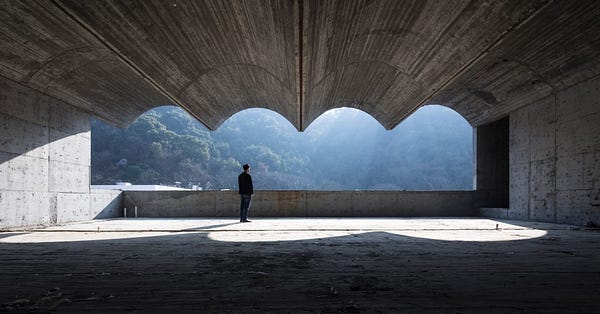TLDL & TLDR: It’s beginning to dawn on everyone that this lockdown will continue for several weeks more in Auckland at least, and that hard level-four lockdowns will be needed well into next year to squash border breaches, despite the PM’s comments yesterday that the Government didn’t want to use lockdowns forever.

David Skegg told a select committee yesterday lockdowns would be needed next year and we’ll look back on 2021 as a ‘golden year’ before the impact of Covid really hit. (Stuff)
Essentially, the poor state of our public health unit contact tracing and ICU departments means we can’t open up until vaccination rates are well above 90%, and even then it would be touch and go.
That in turn means any incursions are likely to trigger snap nationwide lockdowns to stop the initial outbreaks metastasizing across the country, as we’ve seen with the latest lockdown. Only after the suppression can regions open up. See more on that here in this Stuff article from Siouxie Wiles, Shaun Hendy, Michael Plank and Rachel Binny.
It also means increasingly limited MIQ spots, which are now causing all sorts of humanitarian grief for New Zealanders all over the world, plus those here desperate to see and greet or farewell loved ones. (See more on that here at TVNZ and here at RNZ) There is some good news there though. Novotel Ellerslie Ibis’s 200 rooms will start quarantining local cases from this afternoon, freeing up space in the Jet Park. (NZ Herald) Close contacts are also being housed in the Holiday Inn Mangere’s 250 rooms as well. MBIE has yet to reopen new bookings for MIQ spots, which were closed on Sunday night for a ‘few days’.
My view: We started the painful discussion this week about why dropping the elimination strategy is a matter of when rather than if. That ‘when’ may have to be after we get above 90% of all over-12s and we believe our ICUs can handle outbreaks, which is unlikely until mid-2022. Keeping elimination beyond that would be impossible from any reasonable humanitarian, political and economic points of view.
The PM can’t keep saying she doesn’t think we’ll need to go into many of these sort of nationwide hard lockdowns again because we can all see that any delta incursion at the border requires immediate and total nationwide lockdowns to avoid a catastrophic spread. There were already 200 cases out there before we all locked down, and then some of those jumped on planes or drove places in the 48-hour window before actual total lockdown took effect. Our tracking and tracing systems just aren’t big enough for delta to limit the lockdowns at the initial stages.
Here’s a flavour of how long and hard it will be to get out of level four lockdowns from Siouxie Wiles, Shaun Hendy, Michael Plank and Rachel Binny in their Stuff article. The bolding is mine.
“We now know that several superspreading events occurred before the outbreak was picked up, with a large number of people becoming infected at a church service on August 14. Incorporating data from contact tracing and testing makes it likely there were upwards of 200 people infected before New Zealand went into strict lockdown on August 18.
“The elimination strategy is still the best option for New Zealand, simply because the alternatives are grim. Dealing with the Delta variant is like dealing with a whole new virus. In the absence of control measures or immunity, Delta’s R number is estimated to be at least 6, more than twice that of the original strain.
“After accounting for vaccination coverage, alert level 4 restrictions and other measures like contact tracing will need to reduce transmission by at least 80% to see case numbers decline. If the R number stays close to one, case numbers will be slow to fall. Nearly 24% of New Zealanders are now fully vaccinated and a further 18 per cent have had one dose. This level of vaccination may reduce the R number by 15-20 per cent nationally.
“Exactly how long we’ll have to stay in lockdown depends on the R number – the average number of people an infected person passes the virus on to. We need alert level 4 to push the R number below 1 to see case numbers starting to drop.
In the March-April 2020 outbreak, we estimated the R number under alert level 4 to be around 0.4.” Siouxie Wiles, Shaun Hendy, Michael Plank and Rachel Binny in their Stuff article.
So what they’re saying is the only way to contain the outbreak is alert level four restrictions. Even very high vaccination rates may not be enough. So what is a high enough vaccination rate before we can reliably keep R below one? Is it possible? Somehow, we need to get R down from 6 to under 1, when vaccination rates of under 40% get it down to around 5.
What if there is no vaccination rate high enough to get R below 1. What then? Do we keep locking down completely every couple of months? Do we shut down all international flights?
For now, we should of course vaccinate like snot to get it above 90%. It’s possible, and the effects on R can be bolstered by widespread mask wearing, social distancing and ending large ‘super-spreader’ events such as church services, conferences and concerts. Hard MIQ restrictions would continue to seem to be necessary in that state too. That’s not a ‘normal’ opening. How long could New Zealand keep that up?
Scoops and news breaking this morning
It’s in a care home - Stuff reported this morning a staff member at CHT Amberlea, near Snells Beach, was positive with Covid. The home currently has 67 residents, most of whom are in their 70s, 80s and 90s.
Kicked out - Stuff reported Police have warned a renowned Auckland Mixed Martial Arts (MMA) gym for breaching lockdown rules and shut it down. The gym is home to fighters including Israel Idesanya and Dan Hooker the No 8 UFC lightweight contender. They were living in the gym with family members in what they thought was a bubble.
Mental health problems - Stuff’s Henry Cooke reported this morning the head of the Suicide Prevention Office is leaving just two years after it was created. Carla na Nagara is the second top mental health boss to leave the Ministry of Health in recent weeks
Why aren’t they in managed isolation? RNZ reported this morning Ministry of Health data shows just 141 people were in managed quarantine yesterday morning, which is less than 50% of the country's cases of Covid-19. 46 are self-isolating, 13 are in hospital, and 114 are in a category called 'other', ‘which RNZ is following up.’
Chaos in Kabul - Two suicide bombers killed at least 15 and injured many more at the crowded entrance to Kabul airport this morning. US troops were among the dead, a Pentagon spokesman confirmed. (Reuters)
Australian Covid crisis - Australia’s national cabinet will meet today to debate its reopening strategy as the Doherty Institute (their version of our Skegg report) has revised its estimates of how safe it might be to reopen from 70% and 80%. The Guardian reported this morning the Institute had submitted refined modelling to the cabinet meeting showing the effects of higher transmission rates among children.
Not much breathing room - Meanwhile, two major hospitals in Sydney set up emergency outdoor tents late yesterday to help deal with a rise in patients as case numbers. Despite that, NSW Premier Gladys Berejiklian eased some restrictions on vaccinated people. (Reuters)
Signs o’ the times news










Useful longer reads and listens




Some fun things



Ka kite ano
Bernard















Share this post